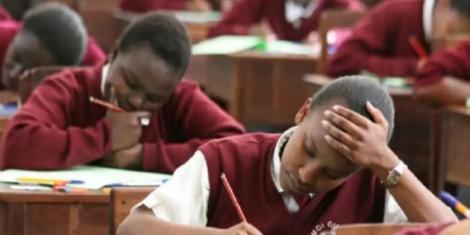The Kenya National Examinations Council (KNEC) has announced significant reforms to the Kenya Certificate of Secondary Education (KCSE) examination process, set to take effect this year. The new measures aim to enhance exam integrity and minimize malpractice.
KNEC CEO David Njengere, during a briefing at Mitihani House, revealed that the upcoming KCSE exams will feature personalized papers for each candidate. These papers will come pre-printed with candidates’ names, index numbers, and other personal details.
“This means that in case of malpractices, we shall ask the candidate why they allowed their paper to be used by someone else,” Njengere explained.
The initiative seeks to address issues such as impersonation, a rare but serious form of exam fraud. In cases where malpractice is detected, the new system ensures that only the individual responsible will face consequences, rather than the entire school or examination center.
In addition to the personalized exam papers, KNEC will implement strict controls on the availability of answer sheets and question papers at examination centers. This decision aims to eliminate opportunities for cheating and promote a fair testing environment.
“No extra answer sheets or question papers will be available at the examination centers,” Njengere noted, highlighting the importance of accountability.
The KNEC chief also mentioned that to prevent the possibility of exam papers being photocopied by school principals, the section of the paper containing the candidate’s details will be removed and packed separately after each exam.
This measure will help ensure examiners do not identify candidates during the marking process, further securing the integrity of the examination.
For private candidates, KNEC has mandated that all theory exams be taken at county headquarters, a change from the previous arrangement where they sat at sub-county headquarters. This logistical adjustment aims to streamline the examination process and improve oversight.
KNEC has also stressed that only registered candidates will be allowed to sit for the exams and only for the subjects they have registered for.
“We expect that all candidates’ details were captured accurately at the registration stage, and there will be no room for excuses,” Njengere emphasized.












